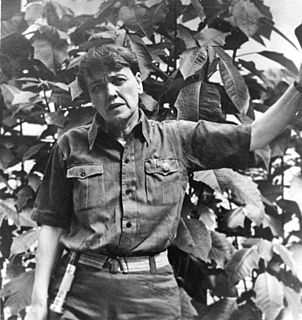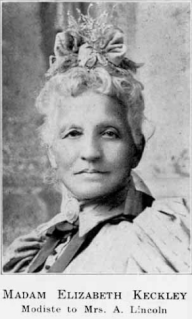A Quote by Doris Kearns Goodwin
Lincoln had internalized the pain of those around him-the wounded soldiers, the captured prisoners, the defeated Southerners. Little wonder that he was overwhelmed at times by a profound sadness that even his own resilient temperament could not dispel.
Related Quotes
The most effective method of propaganda directed at the enemy forces is to release captured soldiers and give the wounded medical treatment... Whenever soldiers of enemy forces are captured, we immediately conduct propaganda among them...This immediately knocks the bottom out of the enemy's slander that the Communist bandits kill everyone on sight.
There were times when it appeared to Dorian Gray that the whole of history was merely the record of his own life, not as he had lived it in act and circumstand, but as his imagination had created it for him, as it had been in his brain and in his passions. He felt that he had known them all, those strange terrible figures that had passed across the stage of the world and made sin so marvellous, and evil so full of subtlety. It seemed to him that in some mysterious way their lives had been his own.
Pain held no terror for him. Pain was, if not friend, then family, something he had grown up with in his crèche, learning to respect but never yield to. Pain was simply a message, telling him which limbs he could still use to slaughter his enemies, how far he could still run, and what his chances were in the next battle.
Suppose you had inherited the same body and temperament and mind that Al Capone had. Suppose you had had his environment and experiences. You would then be precisely what he was. . . . For it is those things - and only those things - that made him what he was. . . . You deserve very little credit for being what you are - and remember, the people who come to you irritated, bigoted, unreasoning, deserve very little discredit for being what they are.
My father left our family for his 'yoga buddy' in 1984, when I was 15. I always stayed in touch with him - I had a deep need to be connected to my father, even though it could be painful at times. I shunned the yoga community because of his actions but eventually realized that yoga could be the antidote to my pain.
Westley closed his eyes. There was pain coming and he had to be ready for it. He had to prepare his brain, he had to get his mind controlled and safe from their efforts, so that they could not break him. He would not let them break him. He would hold together against anything and all. If only they gave him sufficient time to make ready, he knew he could defeat pain. It turned out they gave him sufficient time (it was months before the Machine was ready). But they broke him anyway.
He could feel it immediately when his shoulder snapped - the intense pain of his bones cracking. His skin tightened, as if it could no long hold whatever was lurking inside him. The breath was sucked from his lungs like he was being crushed. His vision began to blur, and he had the sensation he was falling, even though he could feel the rock tearing at his flesh as his body seized on the ground.
One of the lessons learned during the Vietnam War was that the depiction of wounded soldiers, of coffins stacked higher than their living guards, had a negative effect on the viewing public. The military in Iraq specifically banned the photographing of wounded soldiers and coffins, thus sanitizing this terrible and bloody conflict.
What Abraham Lincoln had to face was a culturally and politically cohesive bloc of states comprising half the country, refusing to discuss even the limitation of slavery; while he had only the most feeble means of enforcement. The British and the French could do their emancipating at a distance; Lincoln had armed resistance almost literally at his doorstep.
Life consists of sadness too. And sadness is also beautiful; it has its own depth, its own delicacy, its own deliciousness, its own taste. A man is poorer if he has not known sadness; he is impoverished, very much impoverished. His laughter will be shallow, his laughter will not have depth, because depth comes only through sadness. A man who knows sadness, if he laughs, his laughter will have depth. His laughter will have something of his sadness too, his laughter will be more colorful.
Subjecting prisoners to abuse leads to bad intelligence, because under torture a detainee will tell his interrogator anything to make the pain stop. Second, mistreatment of our prisoners endangers U.S. troops who might be captured by the enemy – if not in this war, then in the next. And third, prisoner abuses exact on us a terrible toll in the war of ideas, because inevitably these abuses become public.







































